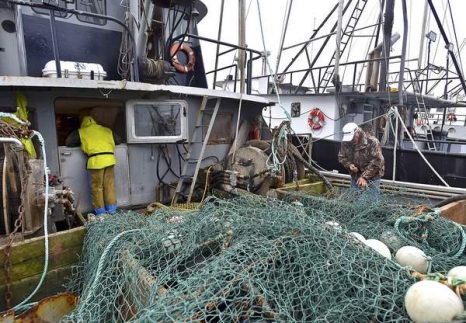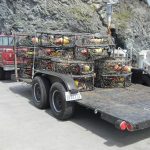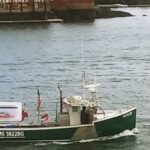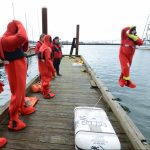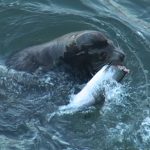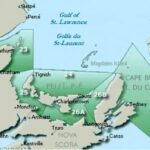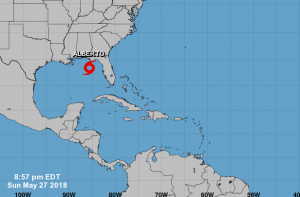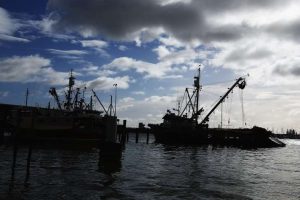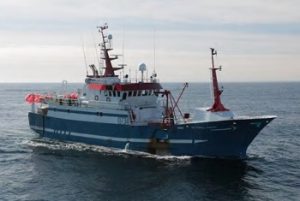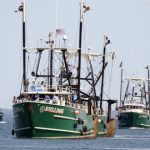Tag Archives: coastal communities
Oregon: Fishing group reacts to BOEM news on offshore wind
 Despite overwhelming opposition from tribes, fishing organizations and coastal communities, the Bureau of Ocean Energy Management (BOEM) announced the release of the final wind energy areas (WEAs) off Oregon’s south coast today. The WEAs remain unchanged from the draft areas released earlier this year. State agencies, fishermen, environmentalists, state legislators and others raised significant concerns about the draft WEAs, apparently to no avail. “This is a slap in the face to the many stakeholders who have been trying to engage with BOEM for the last few years,” said Heather Mann, Director of the Midwater Trawlers Cooperative. “BOEM is a rogue federal agency pushing a dangerous agenda largely unchecked. BOEM will stop at nothing until our oceans are littered with wind turbines and all just to meet an arbitrary political deadline.” more, >>click to read<< 10:24
Despite overwhelming opposition from tribes, fishing organizations and coastal communities, the Bureau of Ocean Energy Management (BOEM) announced the release of the final wind energy areas (WEAs) off Oregon’s south coast today. The WEAs remain unchanged from the draft areas released earlier this year. State agencies, fishermen, environmentalists, state legislators and others raised significant concerns about the draft WEAs, apparently to no avail. “This is a slap in the face to the many stakeholders who have been trying to engage with BOEM for the last few years,” said Heather Mann, Director of the Midwater Trawlers Cooperative. “BOEM is a rogue federal agency pushing a dangerous agenda largely unchecked. BOEM will stop at nothing until our oceans are littered with wind turbines and all just to meet an arbitrary political deadline.” more, >>click to read<< 10:24
Breaking news: Scottish Government backs down over HPMAs
Mairi McAllan, Scotland’s Net Zero Secretary, announced today that both the timetable – with implementation due to take place by 2026 – and scope, covering 10% of Scotland’s coastal waters, were no longer government policy. The Scottish Government had published a consultation document last December, setting out plans for Highly Protected Marine Areas (HPMAs) in which virtually no form of commercial activity – including all forms of fishing, aquaculture or offshore renewable energy installations – would be permitted. The proposals drew strong criticism from coastal communities, the fishing industry and the fish farming sector, and even from some Scottish National Party (SNP) members of the Scottish Parliament, including former Fisheries Minister Fergus Ewing. >click to read< 09:55
American Fishermen, American Consumers and Coastal Communities, Support the A-7 Survival Fund – Highly Migratory Species
 American fishermen,American consumers and coastal communities all lose under the current A-7 amendment to the Fishery Management Plan for Highly Migratory Species. Fearing further decline of domestic fisheries for rebuilt stocks of swordfish, some tuna, and the possible resulting transfer of the United States’ international quota to foreign fleets, members of the Pelagic Longline Fleet and other related businesses have filed suits challenging aspects of Amendment 7 to the Fishery Management Plan for Highly Migratory Species, which includes swordfish and tunas. Read the rest here 11:56
American fishermen,American consumers and coastal communities all lose under the current A-7 amendment to the Fishery Management Plan for Highly Migratory Species. Fearing further decline of domestic fisheries for rebuilt stocks of swordfish, some tuna, and the possible resulting transfer of the United States’ international quota to foreign fleets, members of the Pelagic Longline Fleet and other related businesses have filed suits challenging aspects of Amendment 7 to the Fishery Management Plan for Highly Migratory Species, which includes swordfish and tunas. Read the rest here 11:56
Fish expert sounds off on seismic surveys
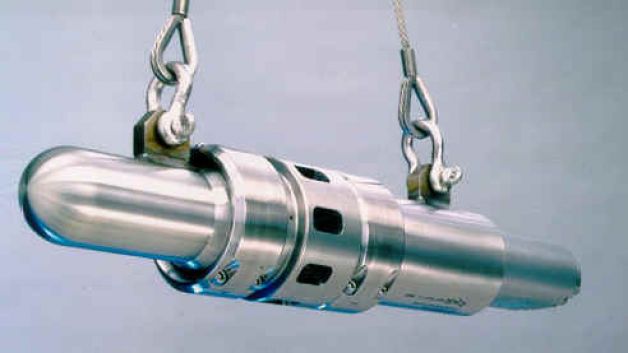 The impact of the surveys on whales and other marine life has been hotly debated. In August, William Yancey Brown, the Bureau of Ocean Energy Management’s chief environmental officer, asserted in an agency newsletter that there’s no documented scientific evidence of noise from air guns used in seismic surveys “adversely affecting marine animal populations or coastal communities” or commercial fishing. But Grant Gilmore, a senior scientist with,,, Read the rest here 12:15
The impact of the surveys on whales and other marine life has been hotly debated. In August, William Yancey Brown, the Bureau of Ocean Energy Management’s chief environmental officer, asserted in an agency newsletter that there’s no documented scientific evidence of noise from air guns used in seismic surveys “adversely affecting marine animal populations or coastal communities” or commercial fishing. But Grant Gilmore, a senior scientist with,,, Read the rest here 12:15
Fisheries policy will destroy the industry it set out to protect – Preserving the Independence of the Inshore Fleet in Canada’s Atlantic Fisheries
 The plan was to prevent “corporations” from owning harvesting licences. Much to the surprise of the Department of Fisheries and Oceans and Canada Revenue Agency, most of the individual fishermen holding licences had already incorporated and took the revenue through a business while the licence was held by an individual. A blind eye here, a pen stroke there and the past was forgotten and the first concessions made — some corporations could hold licences. “One boat, one licence” is an idealistic perspective of fairness and independence. Fleet separation was to establish the rule that fishermen fish, and processors process. It is also one blurred by more concessions. continued
The plan was to prevent “corporations” from owning harvesting licences. Much to the surprise of the Department of Fisheries and Oceans and Canada Revenue Agency, most of the individual fishermen holding licences had already incorporated and took the revenue through a business while the licence was held by an individual. A blind eye here, a pen stroke there and the past was forgotten and the first concessions made — some corporations could hold licences. “One boat, one licence” is an idealistic perspective of fairness and independence. Fleet separation was to establish the rule that fishermen fish, and processors process. It is also one blurred by more concessions. continued






